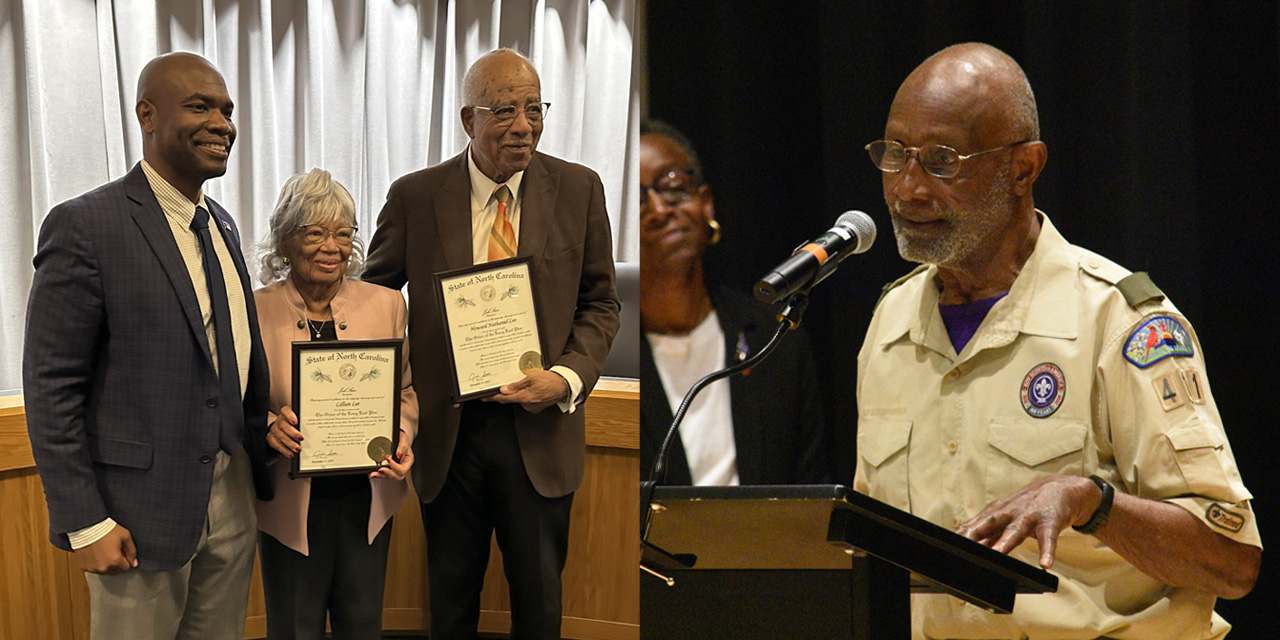The Carrboro Board of Aldermen received a report on policing trends last week as part of an effort to determine whether local law enforcement officers were exhibiting racial biases.
According to Lydia Lavelle, the mayor of Carrboro, the report noted that approximately half of the people stopped for traffic violations within town limits were non-residents.
“They know roughly that 50 percent of the stops were Carrboro residents and then 50 percent were not Carrboro residents,” she stated.
The report also incorporated a statistical tool from RTI International that weighs the number of traffic stops made when race can be easily identified against traffic stops made after dark.
“[The tool] purports to take the number of stops the two hours before nightfall and the two hours after nightfall, and you do some degree of comparison to try to really dig into whether people are being stopped by being able to look at them,” explained Lavelle.
Data gleaned from the use of this tool suggests that traffic stops carried out in Carrboro are equitable, with no racial biases being demonstrated by law enforcement officers.
“It really showed that our stops over time did not differ significantly between the two hours before dark and the two hours after,” noted Lavelle.
Lavelle also mentioned that the number of overall traffic stops in the town had decreased slightly as a result of changes to the community policing model of the department.
“The data showed a dip over the last two years, I would say — a de-emphasis of regulatory stops and tickets,” she claimed.
The report was requested by Walter Horton, the chief of the Carrboro Police Department, and compiled by Sara Owens, crime analyst with the Town of Carrboro.
Photo by Carrboro Police Department.
Related Stories
‹

Carrboro Amends Zoning for CASA Affordable Housing ProjectThe Carrboro Board of Alderman rezoned property on South Merritt Mill Road to allow for the construction of an affordable housing apartment complex. The rezoning was requested by CASA, a local non-profit organization that provides affordable housing, who applied for a conditional use rezoning and a conditional use permit (CUP). Housing developer for CASA, Jess […]
![]()
Carrboro Beginning Several Transportation Updates in 2018The Carrboro Board of Aldermen may be finished up with meetings for the year, but the planning for 2018 is ongoing. Mayor Lydia Lavelle says the first meeting back will be on January 9 with a work session that will focus on the construction of the new library and several transportation issues that are now […]
![]()
Incumbents and Foushee Win Carrboro Seats in 2017 ElectionCarrboro mayor Lydia Lavelle has been reelected against opponent Mike Benson in this year’s election with 3,196 votes. Lavelle has served as mayor for two terms while Benson formerly owned Carrboro restaurant the Southern Rail. Leading the race for the town’s Board of Alderman was newcomer Barbara Foushee with 3,267 votes, who previously served on […]
![]()
Carrboro Officials Approve Police Body Camera PolicyThe Carrboro Police Department is one step closer to acquiring new law enforcement tools for its officers after town officials approved a policy last week on body-worn cameras. While ruminating on the cameras during a regular meeting, the Carrboro Board of Aldermen heard from Walter Horton, the local police chief, on how these tools function. […]
![]()
CVS-Owned Building in Carrboro DemolishedThe CVS-owned building on the corner of South Greensboro and Weaver Streets in Carrboro is demolished. The building has been at the center of controversy after CVS bought the building but did nothing with it after the Board of Aldermen denied the company’s request to rezone the property around it in 2013. However, the town […]
![]()
Carrboro Considers Body Cameras for PoliceThe Carrboro Board of Aldermen will meet next month to discuss the suitability and cost of body-worn cameras for the Carrboro Police Department. According to Lydia Lavelle, the mayor of Carrboro, board members are eager to receive input from residents as to whether these cameras would be a wise investment for the town. “Our board […]

Chapel Hill-Carrboro Icons Howard and Lillian Lee, Braxton Foushee Granted Statewide HonorThree groundbreaking Black local leaders saw their years of service awarded by being inducted into the Order of The Long Leaf Pine

NC Attorney General Holds Roundtable with Orange County Law EnforcementNorth Carolina Attorney General Josh Stein visited Chapel Hill and held a roundtable with Orange County law enforcement last week.

Coworking Space Sees Pandemic Challenges as Perch Studio in Carrboro ClosesUPDATE: A previous version of this story reported Spaces Station at East 54 may be closing due to its parent company filing for bankruptcy. Spaces Station remains open and continues to operate amid the pandemic. This article and its headline has been updated to reflect this information. The coronavirus pandemic continues to change how businesses […]

Carrboro Receives Update on 203 Project Designs, PlanningThe Carrboro Town Council has received several updates regarding the 203 Project this year, with one at last Tuesday’s meeting being the latest. But this time, town officials saw the first concept designs created by architecture firm Perkins + Will since some aspects of the project’s vision changed. The town initially planned for the 203 […]
›






